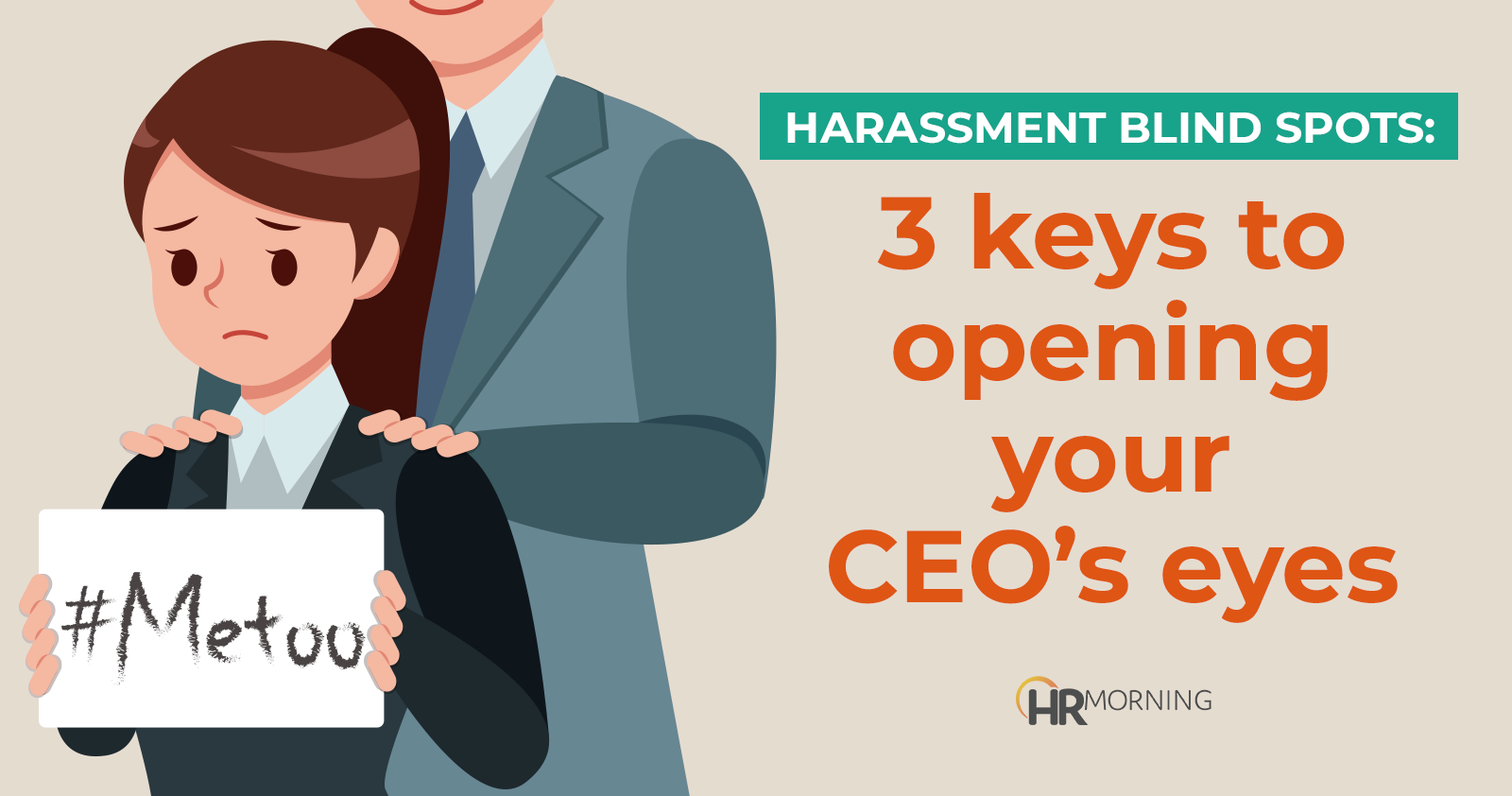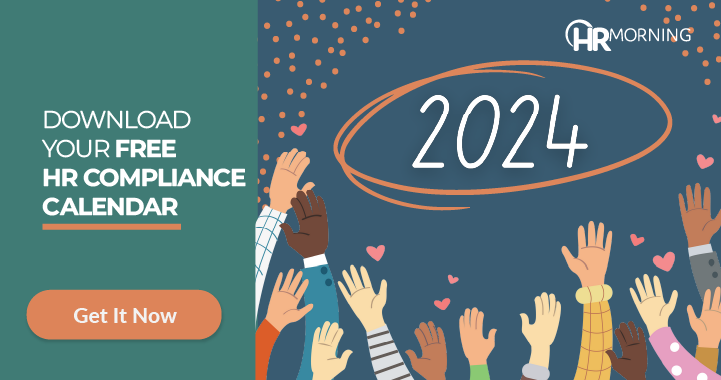In this post-#MeToo world, nearly every HR pro has made sexual harassment prevention a top priority.
But despite your best efforts, harassment isn’t going away. Research shows employees are just as likely to be sexually harassed now as they were before the #MeToo movement.
Three misconceptions
So why does this issue persist? Turns out, even if HR is proactive and diligent when it comes to harassment prevention efforts, if the higher-ups aren’t committed, problems will continue.
According to employment law attorney Jathan Janove, there are a lot of reasons CEOs don’t take sexual harassment claims more seriously, despite the severity of the issue.
One reason is higher-ups have a hard time believing that employees who are always courteous to their bosses could ever cross a line with their colleagues. It’s easy for managers to dismiss a harassment claim outright, saying something like, “I know John, and he would never do anything like that!”
Janove says another issue is CEOs are more willing to give top performers the benefit of the doubt or a second chance, since that employee impacts the company’s bottom line.
The third reason CEOs aren’t in a hurry to do more is often because they think that current harassment policies and training in place are enough, Janove says. But conventional sexual harassment prevention does little more than protect a company against potential lawsuits.
Culture shift
If HR truly wants to get to the root of the sexual harassment problem, it’ll need to get the C-suite completely on board.
To tackle sexual harassment, company culture needs an adjustment from the top down, Janove says.
CEOs need to adopt the attitude that harassment prevention should be a priority because every employee deserves to feel safe and respected — training and policies shouldn’t have the sole purpose of shielding the company from legal problems.
Janove says when higher-ups get wind of harassment reports, they shouldn’t ask whether the behavior was sexual or unwelcome, but rather, “Does this behavior support our commitment to a respectful, secure work environment for all?”
When a CEO looks at sexual harassment from this perspective, and HR reinforces this position, employees will quickly get the message that harassment is unacceptable.
Convincing the CEO
Creating a united front between HR and the C-suite can be easier said than done, though. Many CEOs believe sexual harassment isn’t a problem at their company.
Here’s how you can convince the higher-ups to take harassment prevention seriously, according to EEOC staff:
- Cost of litigation. Last year, employers paid about $70 million in monetary damages in EEOC sexual harassment cases. This number doesn’t include lawsuits filed privately. This payout alone is giant enough to get any CEO’s attention.
- Loss of productivity. It’s impossible for harassed employees to be engaged, productive workers. Victims of harassment often suffer adverse mental health effects, which can result in absenteeism and higher medical costs. A harassment-free environment will only lead to higher productivity.
- Harm to company reputation. If word gets out about any harassment problems, it will be very difficult for an employer to attract talented candidates. Having a strong stance on preventing sexual harassment will only help with recruiting and ensure company reputation remains intact.


